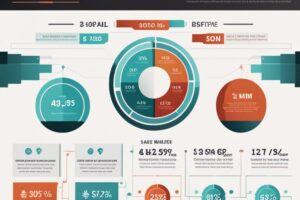Introduction:
In the pursuit of financial wellness, mastering the basics of budgeting is akin to laying the foundation for a secure and prosperous future. A budget is not just a financial tool; it’s a roadmap that guides individuals toward their financial goals. In this comprehensive blog post, we will delve deep into the world of budgeting, exploring its significance, intricacies, and the transformative impact it can have on your financial journey.
Understanding the Essence of Budgeting:
Defining a Budget:
At its core, a budget is a detailed plan that outlines an individual’s or a household’s financial goals and allocates resources accordingly. It serves as a blueprint for managing income, controlling expenses, and directing funds toward specific objectives, whether short-term or long-term.
The Significance of Budgeting:
Budgeting is a dynamic process that empowers individuals to take control of their finances. It provides clarity on where money is coming from, where it’s going, and how it’s being utilized. A well-crafted budget is a tool for informed decision-making and a shield against financial uncertainty.
The Components of a Comprehensive Budget:
Income:
The first step in budgeting is understanding your sources of income. This includes your salary, bonuses, side hustles, and any other inflows of cash. Having a clear picture of your income is crucial for effective budgeting.
Fixed Expenses:
Fixed expenses are regular, predictable costs that remain relatively constant each month. These include rent or mortgage payments, utility bills, insurance premiums, and loan payments. Identifying and categorizing fixed expenses is essential for creating a stable budget foundation.
Variable Expenses:
Variable expenses are costs that fluctuate from month to month. These may include groceries, entertainment, dining out, and other discretionary spending. Tracking and managing variable expenses require flexibility within your budget.
Savings:
Allocating a portion of your income to savings is a non-negotiable component of a budget. Whether it’s an emergency fund, retirement savings, or specific goals like a vacation or a down payment, savings should be prioritized in your budget.
Debt Repayment:
If you have outstanding debts, such as credit card balances or loans, budgeting should include a strategy for timely repayment. Prioritizing debt repayment ensures that interest costs are minimized, and financial stress is reduced over time.
Creating Your Budget: Step-by-Step Guide:
Determine Financial Goals:
Start by identifying your short-term and long-term financial goals. These could include paying off debt, saving for a vacation, buying a home, or building an emergency fund. Your goals will shape the structure of your budget.
Calculate Income:
Total your monthly income, considering all sources. This provides a clear understanding of the financial resources available for allocation in your budget.
List Fixed Expenses:
Enumerate all fixed expenses, ensuring that you account for necessities like rent or mortgage, utilities, insurance, and loan payments. Fixed expenses are the bedrock of your budget.
Identify Variable Expenses:
Analyze your spending habits to determine variable expenses. This category encompasses discretionary spending on entertainment, dining out, and non-essential items. Be realistic and honest about your spending patterns.
Allocate for Savings:
Prioritize savings in your budget. Aim to allocate a specific percentage or amount to savings each month. This can include contributions to an emergency fund, retirement accounts, or other financial goals.
Address Debt Repayment:
If you have outstanding debts, allocate a portion of your budget to debt repayment. Focus on paying off high-interest debts first while making minimum payments on others.
Adjust and Review:
Your first budget might not be perfect, and that’s okay. Regularly review and adjust your budget as circumstances change. Life is dynamic, and your budget should be flexible enough to accommodate fluctuations.
The Transformative Impact of Budgeting:
Financial Discipline:
Budgeting instills financial discipline by requiring individuals to make intentional choices about their spending. It promotes mindful consumption and curbs impulsive purchases.
Debt Reduction:
Through the allocation of funds for debt repayment, budgeting serves as a strategic tool for reducing and eventually eliminating debts. This not only saves money on interest but also relieves financial stress.
Emergency Preparedness:
Allocating funds to an emergency fund within your budget creates a financial safety net. This reserve provides peace of mind and a buffer against unexpected expenses, such as medical emergencies or sudden job loss.
Goal Achievement:
Budgeting transforms aspirations into achievable goals. Whether it’s saving for a dream vacation, purchasing a home, or planning for retirement, a well-structured budget serves as the roadmap that guides you toward realizing your dreams.
Financial Awareness:
Regularly tracking and reviewing your budget fosters financial awareness. You become acutely aware of your financial habits, enabling you to make informed decisions and adjustments as needed.
Challenges and Strategies for Budgeting Success:
Overcoming Lifestyle Inflation:
As income increases, there’s often a temptation to inflate one’s lifestyle. Successful budgeting involves resisting this temptation and directing additional income towards savings and financial goals.
Dealing with Irregular Income:
Individuals with irregular income, such as freelancers or those with variable commissions, face unique budgeting challenges. Creating a budget based on an average monthly income and building a financial cushion can help smooth out income fluctuations.
Staying Consistent:
Consistency is key to successful budgeting. Set aside time regularly to review your budget, track expenses, and make necessary adjustments. Consistency helps in building and maintaining positive financial habits.
Adjusting for Life Changes:
Life is dynamic, and so should your budget be. Major life changes, such as marriage, the birth of a child, or a career shift, necessitate adjustments to your budget. Be proactive in adapting your financial plan to accommodate changing circumstances.
Conclusion:
In the tapestry of financial well-being, mastering the basics of budgeting is a thread that weaves together stability, discipline, and goal achievement. A budget is not a constraint; it’s a tool that empowers you to take control of your financial destiny. As you embark on your budgeting journey, remember that it’s not a one-size-fits-all endeavor. Tailor your budget to your unique circumstances, and let it be a guiding light toward a future of financial prosperity and peace of mind. Start today, and watch how the transformative impact of budgeting unfolds in your life.




